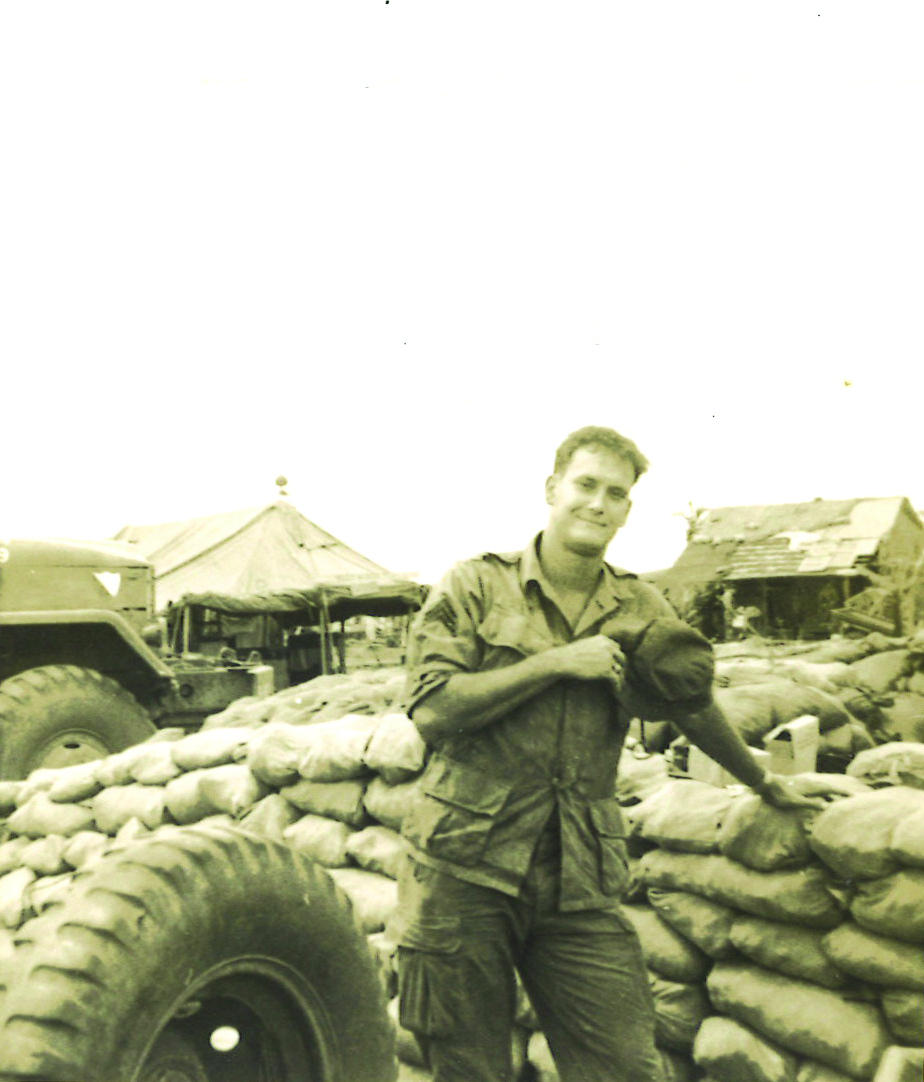It was just a few years ago that Wally Collins of Dr. Phillips started to open up about his experiences as a young man in Vietnam. Being on the receiving end of hostility was a real possibility for returning soldiers. Dealing with painful combat memories was tough too. “Honestly, for a long time I didn’t know whether to be ashamed or what,” he says. “I don’t know if it was just that I didn’t feel like anybody would appreciate it or understand it.”
In 1966, at 19 years old, Collins enlisted in the Army to the chagrin of his family. At the time, he was studying business at a private college in New Hampshire, but he wasn’t taking school seriously and was about to flunk out. After completing basic training and advanced infantry training, he moved on to Fort Benning in Georgia, where the 199th Light Infantry Brigade was being formed specifically for combat in Vietnam. “We all became very tight because we lived with each other, ate with each other, laughed with each other, and trained just about every day,” he says.
Bad News on the Battlefield
Several months later, in mid-December, the brigade boarded a C-141 headed for war. The 24-hour trip included stops in Alaska and Japan before reaching the final destination: the soggy forests of Long Binh, Vietnam. It was hot and humid as they built their base camp – digging trenches and setting up tents all while jetlagged. Not only did they have to acclimate to the often brutal climate but the average infantryman was, at one time, carrying about 90 pounds of supplies between weapons and a rucksack holding their water, food, dry socks and ammunition. “It’s incredible what our military can do, incredible what our veterans have done for our country,” says Collins.
About a month after arriving in Vietnam, Collins was asked to meet a helicopter at the unit’s forward operation. When he got there, he was met by a chaplain who informed him that back at home his brother had died after suffering serious injuries in an accident while working with his father in North Dakota. “He was left paralyzed from the neck down and he committed suicide,” says Collins. “So I flew home for emergency leave.”
While he felt an obligation to return to Vietnam, his parents were distraught at the thought of losing one son and sending another back to war. But he joined his friends on the battleground several weeks later, returning to news that his unit had been ambushed and several of them had been killed. Instead of going back to the infantry, which would have gone against his parents’ wishes, Collins joined the 152nd military police unit that was attached to the 199th light infantry brigade.
Everyday Life for a Soldier
At the new base, which was a temporary POW holding camp, Collins worked alongside South Vietnamese rangers. “We would either hike out or helicopter out to the small villages and hamlets and get with the village chief to try to get intel as far as the activity that was going on in the area,” says Collins.
He calls it a ritual: tour the schools, meet the school teachers, tour the town, meet with the village chief in a small armed van, and, finally, eat. The meal was always chicken. The ritual ended with a shot of Vietnamese whiskey, Collins remembers. “It was the worst stuff I’ve ever had in my whole life,” he says with a laugh.
The unit also ran pacification programs to give back to the town’s people while doing search and seizures, looking for weapons or the Vietcong. “We would go into the villages and, of all things, we would bring them Uncle Ben’s rice,” says Collins.
During this time, he developed a strong connection with his commander, Capt. Vesa Alakulppi. “He taught me so much,” says Collins. “He was not only my leader but he was a good friend.”
On a mission to protect a bridge that led south into the delta, Alakulppi and a group of soldiers took up a position there. Collins was part of another group that was returning to the base camp in Long Binh. They visited their comrades at the bridge for about 45 minutes before moving along around 5 or 5:30 p.m. “I remember the time because I looked at my watch,” says Collins. “I noticed that the villagers were coming out and standing on the side of the road, which was pretty unusual for that time of day – like they were catching a bus or something.” His first thought was to turn back and tell the group his suspicions but he kept going instead.
Collins found out later that his suspicions were correct. The group was ambushed, and Alakulppi was killed. “It’s one of the things I’ve lived with for a long time. I had that guilt that I didn’t go back, just to assume,” he says. “I never assumed anything again for the rest of my life.”
Fast Forward to the Present
These days, Collins runs a catering company that he established with his family called Collins Catering and is the treasurer for the Florida Association of Veteran-Owned Businesses (FAVOB). The nonprofit organization seeks to help grow veteran-owned businesses and to support and endorse employing veterans who are returning from active and reserve duties as they join the civilian workforce.
Collins attributes his participation with FAVOB as well as the encouragement and support of his family and fellow veterans, Michael Waldrop and Lee Smith, in helping him to open up about his experiences. Watching his daughter graduate from boot camp on the same field in Fort Jackson, South Carolina that he did 40-plus years earlier was another major turning point for him.
“In many cases, veterans don’t want to share their stories and feel as if they were just doing their jobs,” says Waldrop, chairman of the board for FAVOB. “I have experienced that sharing your experiences is not only therapeutic but also is something the citizens in our society need to hear to be aware of the sacrifices and work our service members make for our freedoms.”
Collins notes that one of the most important thing anyone can take away from an experience like war is the principals. “It’s an important thing because they’re all right there: trustworthiness, honor, loyalty,” he says. “You not only learn them but you physically live them day in and day out.”







Comments